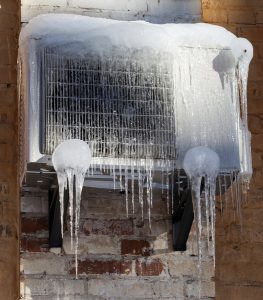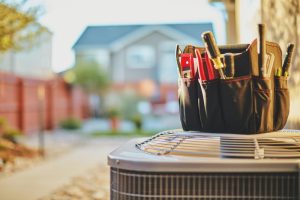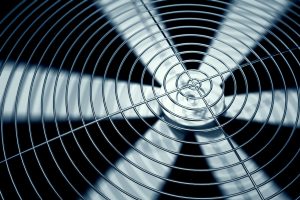 Do you live in a house that uses a boiler for heat and doesn’t have any ductwork to allow for a central air conditioning system? If so, you probably have window AC units around the house to help cool down during the summers.
Do you live in a house that uses a boiler for heat and doesn’t have any ductwork to allow for a central air conditioning system? If so, you probably have window AC units around the house to help cool down during the summers.
ServiceMax Blog: Posts Tagged ‘Air Conditioning System Installation’
Go Ductless and Get Rid of Those Window AC Units
Monday, June 17th, 2019A Bad AC Installation Is Truly Bad! Here’s Why
Monday, May 6th, 2019 If you enjoy “do-it-yourself” projects around the home, there are probably a few big jobs you’re itching to see if you can handle on your own. What about installing a new central air conditioning system? That sounds like it might be a genuine adventure, and you’ll end up saving money on labor costs when you make the project your own.
If you enjoy “do-it-yourself” projects around the home, there are probably a few big jobs you’re itching to see if you can handle on your own. What about installing a new central air conditioning system? That sounds like it might be a genuine adventure, and you’ll end up saving money on labor costs when you make the project your own.
Hold it right there! We understand your enthusiasm—but central AC installation must only be done by licensed HVAC professionals. This rule applies both to DIY attempts and allowing unlicensed amateur “handymen” to take on the work. A bad air conditioning system installation has many consequences that will cost you in comfort, money, and time.
Is an Air Conditioning System Enough to Control Humidity?
Monday, July 16th, 2018 When your air conditioning system is running during a humid summer day—and we get plenty of those in Chicagoland—you’ll occasionally hear a dripping sound coming from the unit. This isn’t because the AC uses water to help cool down the house. The only type of cooling system that does that is an evaporative cooler. What you’re hearing is the water moisture the air conditioner has drawn out of the air with the evaporator coil dripping down into a condensate pan and then being drained outside through a condensate drain line. This collection of moisture is a natural result of the evaporator coil absorbing heat from inside the house to cool the air.
When your air conditioning system is running during a humid summer day—and we get plenty of those in Chicagoland—you’ll occasionally hear a dripping sound coming from the unit. This isn’t because the AC uses water to help cool down the house. The only type of cooling system that does that is an evaporative cooler. What you’re hearing is the water moisture the air conditioner has drawn out of the air with the evaporator coil dripping down into a condensate pan and then being drained outside through a condensate drain line. This collection of moisture is a natural result of the evaporator coil absorbing heat from inside the house to cool the air.
This makes it sound like the air conditioner is also a dehumidifier. But this is not really the case. An air conditioner on its own usually isn’t sufficient to properly dehumidify a house. It can provide cooling to help you feel cooler, but when the relative humidity is above 60%, the AC won’t do much to lower it to comfortable levels.
Air Conditioner Shopping Help: SEER vs. EER
Monday, March 27th, 2017 It’s now officially spring, and no matter what cold spells we may encounter in the coming weeks, the move toward warmer weather has started. This is an excellent time of the year to consider options for replacing an old air conditioning system. If your current AC is over 15 years old or has started to show signs of a decline in efficiency, reliability, and/or cooling output, it’s smart to have it retired and replaced with a new unit before the summer heat arrives.
It’s now officially spring, and no matter what cold spells we may encounter in the coming weeks, the move toward warmer weather has started. This is an excellent time of the year to consider options for replacing an old air conditioning system. If your current AC is over 15 years old or has started to show signs of a decline in efficiency, reliability, and/or cooling output, it’s smart to have it retired and replaced with a new unit before the summer heat arrives.
4 Common AC Installation Mistakes Amateurs Make
Monday, May 30th, 2016The summer’s almost here, and that means some blistering hot days ahead. Do you trust that your home’s current air conditioning system will make it through the heat and get to the fall without suffering a major malfunction? If you’re not sure, or if your AC is older than 15 years, now is an ideal time to arrange for a new installation to replace it.
It’s vital that you only call on experienced HVAC professionals to handle the installation job. Don’t let the promises of low costs from amateurs lure you! There are too many risks involved in having non-professionals try to install something as complicated as a central air conditioning system. Below are 4 mistakes that amateurs often make:
What Does the ENERGY STAR Label Mean on ACs and Heaters?
Monday, March 21st, 2016If you’ve purchased any type of appliance or electronic device in the last couple of decades, you’ve more than likely heard of the ENERGY STAR label. ENERGY STAR is a U.S. Environmental Protection Agency (EPA) voluntary program that helps businesses and individuals save money and protect our climate through superior energy efficiency.